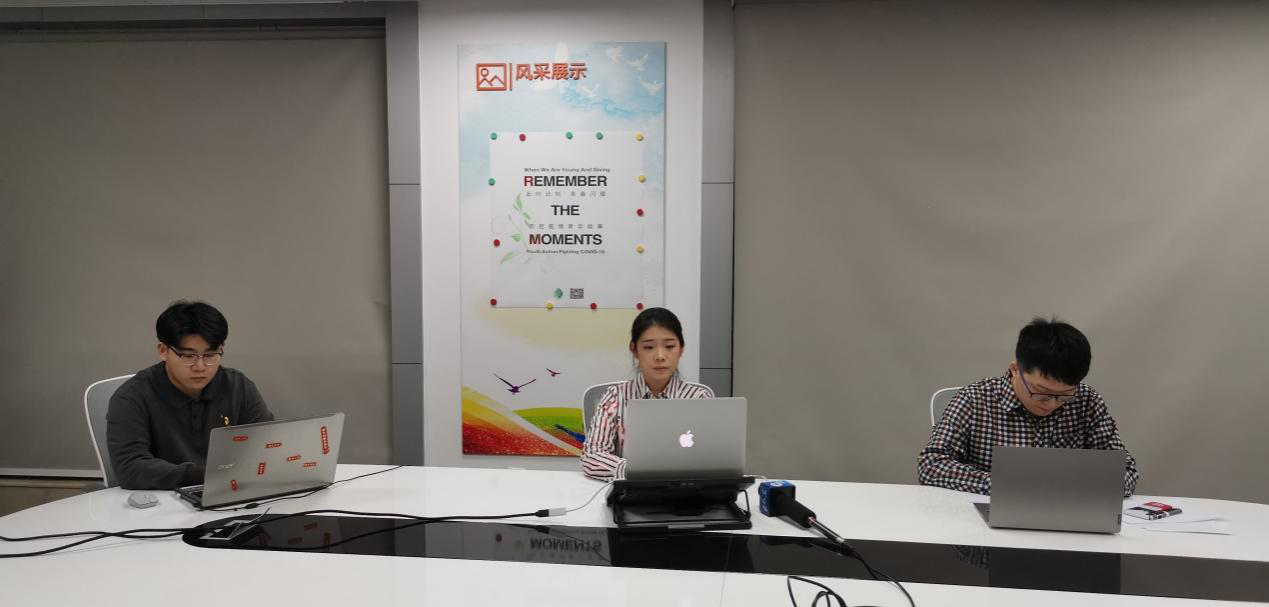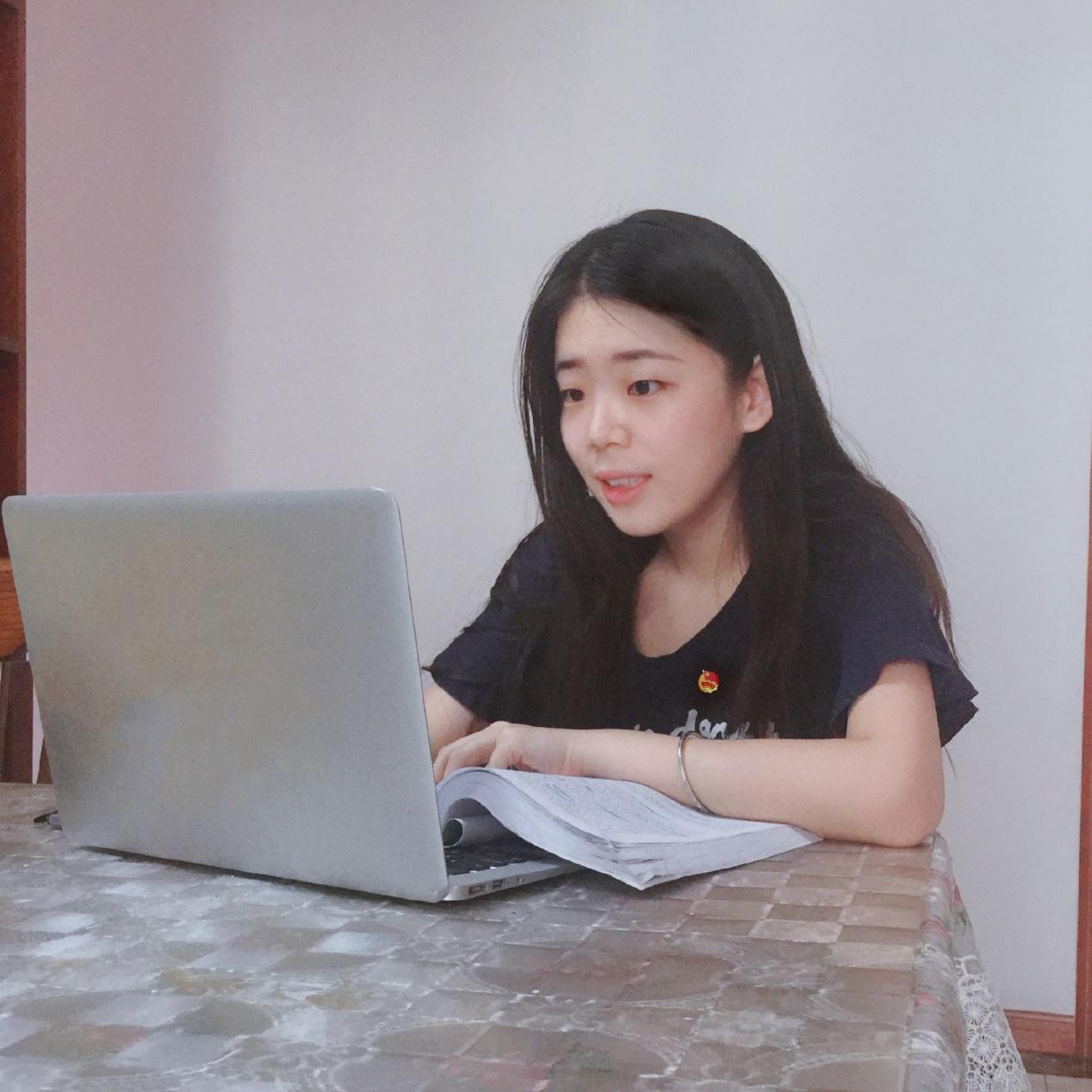We are experiencing a pivotal moment in history. With majority of countries in the world implementing lock downs, curfews and stay at home orders for the first time in this century, we have seen a wide variety of reactions to this seemingly interminable state of confinement…These young people help me feel like, even though it doesn’t always feel like it, everything will be alright. And, right now, that means the world.
——Office of the Secretary-General’s Envoy on Youth
On the evening of April 15, the Office of the Young Envoy of the Secretary-General of the United Nations, the World Health Organization (WHO), and United Nations International Children’s Emergency Fund (UNICEF) jointly organized the “Coping With COVID” Webinar. Youth representatives from China and many other countries were invited to communicate online to help young people all over the world solve their psychological problems caused by the epidemic.

Wang Xiukun at the “Coping With COVID” Webinar
As a representative of Chinese youth volunteers, Wang Xiukun, a graduate student from School of Foreign Languages and Literature of Wuhan University, introduced China’s anti-pandemic experience and achievements to young people throughout the world. She also shared her stories of offering support to the families of the frontline healthcare workers.
During the epidemic, Wang Xiukun, along with other four aspiring youth, organized “Caring for Children of Frontline Medical Staff” program and matched more than 1,500 volunteers from WHU with the families of 641 healthcare workers. The program provides online tutoring and psychological counseling for teenagers aged from 5 to 18 years old.
To be shining sparks
In the early stages of the pandemic, the news about recruiting online volunteers inspired Wang’s eagerness to “do something”. Soon she found four companions. The five students originally planned to donate medical supplies to Zhongnan Hospital. But after they talked with one of the staff there, they found the more urgent worry of many medical professionals was their children’s education and mental health. In response to this demand, they initiated this online education voluntary service.
On the one hand, they contacted doctors in the hospital and collected their information, such as the age of their children, subjects they want to learn and their requirements for volunteers. On the other hand, with the help of different organizations in Wuhan University, they issued a registration link to recruit volunteers. To their great surprise, even though they built three QQ groups that could contain1500 people in advance, the number of volunteers reached the upper limit in a very short span of time, and everyone showed great passion.
To start the prairie fire
In the first round of matching, Wang and the other four students manually processed more than 30,000 messages and the work had not been done until five in the morning. They also noticed that many medical staff didn’t reply to the messages until two or three o’clock in the middle of the night. Later Wang’s team realized that it is the time when they change shifts in hospital. “Compared to these medical staff’s contributions, what we did was really insignificant.” Wang said impressively.
Since the matching was based on priority, the first batch only included 100 families, and most volunteers were not matched successfully. At that time, many of them came to Wang and said “although I signed up for liberal arts or Chinese, I can also teach math and English”, or “I can teach both primary and middle school students”. Everyone was extremely enthusiastic and desired to plunge in.

Wang teaches English twice a week, as part of the online service
As a result, after the children of the first batch medical staff from the Wuhan University Affiliated Hospital were matched, Wang and her friends searched for more families. The second round contained 400 families of the medical staff in Wuhan. Then in the third batch, they expanded it to the kindergarten families of the original Hubei Medical Team which included medical staff from other provinces who were offering their help at the hospitals in Hubei Province. Eventually, more than 600 families and 1500 volunteers have been matched successfully.
This large number of volunteers gradually grows into a coordinated team. For example, the core staff are responsible for developing new and innovative ways to interact with children, and other volunteers spring into action accordingly. The team now has class leaders for each grade and subject, with small online chat groups for each family.
Let the love flow
Wang Xiukun said that their aim is to provide whatever services needed by medical staff. For example, a growth file for each child, which records the development of the children during the epidemic, has been established by volunteers and will later be sent to their parents. The program also plans to send gifts to the volunteers and the children, and even hold an offline meeting after the school reopens. Wang believes that online friendship between medical families and WHU students will last even after their services are over.
While doing the online service, Wang recognized that volunteering is not only about helping others, but also greatly inspires her to overcome the difficulties during the epidemic period.
Members of the “Caring for Children of Frontline Medical Staff” program also enters the shortlist for this year’s "Top 10 Luojia Fengyun (outstanding) Students/groups" of WHU. This is the reward and recognition for all the enthusiastic WHU volunteers.
Photo by Wang Xiukun
Edited by Yu Jianan, Zhou Siyan, Li Yushan & Hu Sijia
Source: https://mp.weixin.qq.com/s/0juMZSi_4ktyyEnrpkn-3A


